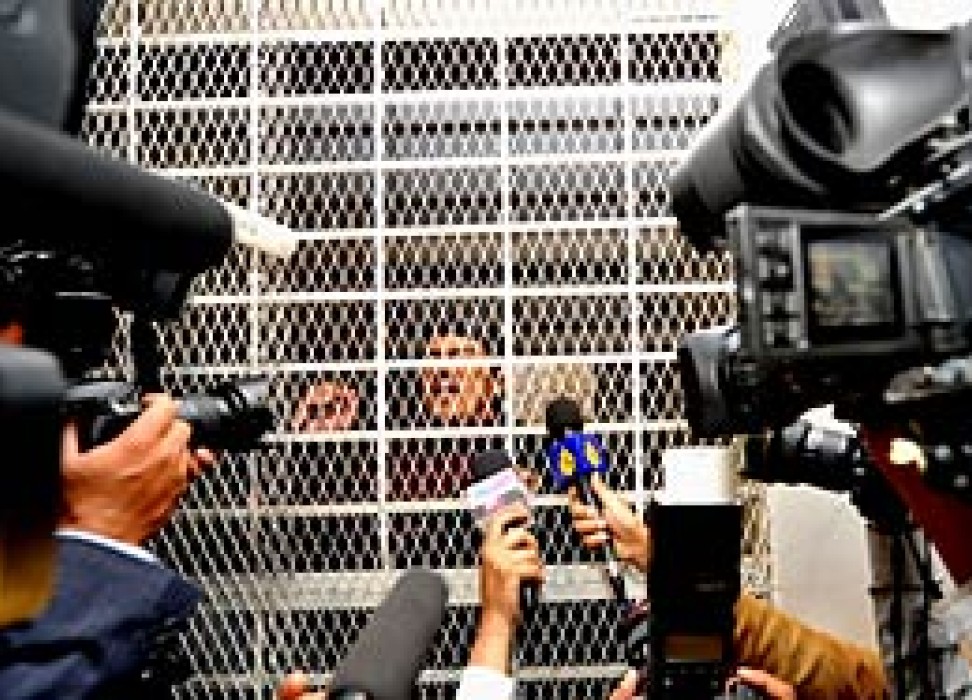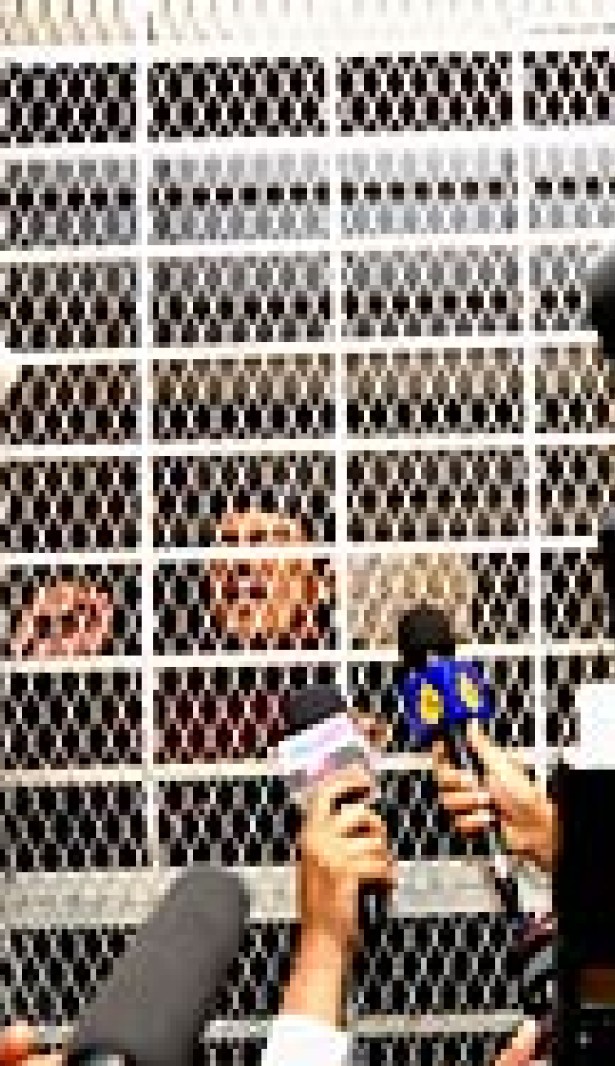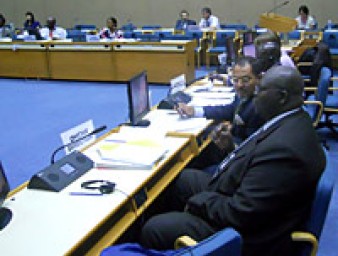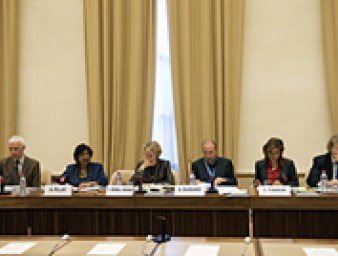Freedom of the Press: in the Middle East, widely curtailed and often violated
03 May 2012

On World Press Freedom Day, UN High Commissioner for Human Rights, Navi Pillay says governments must work to protect the media and “investigate and bring to justice those responsible for violent assaults upon journalists.”
Research recently conducted by the Office of the High Commissioner for Human Rights in the Middle East has shown that although the constitutions of the majority of Middle Eastern countries provide for freedom of expression, in reality conventional and international (including radio, satellite TV and the Internet) media remain under a restricted and intimidatory legal, political and security environment.
The research also found that national press and publication laws are frequently changed and vaguely worded, opening them to wide interpretation and potential abuse.
"The media – old and new, local and international has paid a heavy price for its sustained and courageous efforts to inform local and international populations about the political upheavals in the Middle East." These comments from Fateh Azzam, Head of the UN Human Rights regional office in the Middle East, on World Press Freedom Day, acknowledge the vital role played by the media in covering events as they have unfolded in the Middle East.
The toll has been high. “Journalists across the Middle East are being harassed, intimidated, arbitrarily detained and deported, subjected to torture and other forms of violence, and some have been killed," Azzam said.
According to the Committee for the Protection of Journalists (CPJ), by the end of April, eight journalists in the Middle East had lost their lives as a result of their work: one in Lebanon, six in Syria and one in Bahrain this year alone.
Noting these trends, Azzam said “many governments in the region have used emergency regulations and their security services (and in some countries the army) to clamp down on freedom of expression and place restrictions on media organizations and outlets.”
In Syria, local and international journalists continue to be targeted. At the time of writing, journalists and activists remain in detention after a raid in February on the Syrian Centre for Media and Freedom of Expression. The detainees have been denied due process and rights groups claim they have been tortured.
In Yemen, continuing violence against journalists has been reported since political unrest erupted last year, including physical assaults, detentions and attacks on news outlets.
With protests ongoing in Bahrain, the authorities in April denied entry into the country of at least seven international journalists prior to the Formula One Grand Prix event.
In March, three Saudi web journalists whose sites cover political unrest in the country's troubled Eastern Province were arrested and a Jordanian journalist was detained in April after publishing an article alleging misconduct by the Royal Court.
In Kuwait, a court in March suspended a private newspaper for three months and sentenced its editor to a six-month prison term for articles pointing to discrimination against the country's minorities.
"Governments in the Middle East, in effect, prevent conventional media from fully doing their work, including having direct access to situations where very serious human rights violations are taking place," Azzam said. “This situation must change,” he said, adding that “an open and free press is crucial for the exercise of democratic participation.”
Reporters without Borders, an NGO which monitors the safety of reporters and media freedom internationally, in its annual index, ranked half of the countries in the Middle East in the bottom third in its latest Worldwide Press Freedom Index.
Pillay says she believes ultimately these attempts to proscribe the fundamental right to freedom of expression will fail: “The world has changed forever. Global communications technologies now reach the furthermost corners of the globe. The stories will be told, read, watched and listened to by people well beyond the borders of their countries of origin.”
“On the occasion of World Press Freedom Day 2012, the UN Human Rights regional office in the Middle East reiterates its readiness to support the governments and peoples of the region to achieve a greater commitment to the fundamental right of all to free and unhindered access to information," Azzam said.




